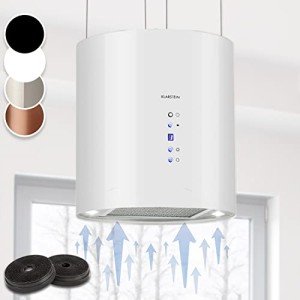See What Kitchen Island Cooker Hood Tricks The Celebs Are Making Use O…
본문

The Comprehensive Guide to Kitchen Island Cooker Hoods
When creating or renovating a kitchen, the choice of devices and fixtures is important in attaining both performance and aesthetic appeals. Amongst these aspects, the kitchen island vent hood cooker hood plays an essential function in ensuring a tidy and enjoyable cooking environment. This article looks into the benefits, types, setup factors to consider, and upkeep suggestions for kitchen island cooker hoods.
Understanding Kitchen Island Cooker Hoods
A kitchen island cooker hood (long-burnett-2.Technetbloggers.de), likewise referred to as a vent hood, is a ventilation device set up above a kitchen island cooktop. Its primary function is to get rid of smoke, steam, grease, and odors produced during cooking. Modern kitchen island hoods not only provide performance but also add an unique visual component to the kitchen style.
The Importance of a Cooker Hood
The need of a kitchen island cooker hood can not be overstated. Here are several advantages:
- Air Quality Improvement: The primary benefit of a cooker hood is improving indoor air quality by efficiently eliminating contaminants from the kitchen environment.
- Odor Reduction: By getting rid of cooking odors, it helps preserve a fresh environment in the home.
- Defense of Kitchen Surfaces: Cooker hoods decrease grease buildup on cabinets, walls, and other surface areas, prolonging their life-span and keeping their appearance.
- Boosted Cooking Experience: A well-ventilated kitchen enables for a more pleasant cooking experience, specifically in open-concept spaces where the kitchen cooker island incorporates with living areas.
Types of Kitchen Island Cooker Hoods
Kitchen island cooker hoods been available in different styles and types, catering to various kitchen styles and individual preferences. The following are the most common:
| Type | Description |
|---|---|
| Canopy Hoods | Wall-mounted and utilized over a kitchen island; normally ducted for enhanced ventilation. |
| Downdraft Hoods | Integrated into the cooktop, these hoods increase when in use and withdraw when not, saving area. |
| Chimney Hoods | Standalone units that have a chimney-like structure; they can be ducted or recirculated. |
| Island Range Hoods | Particularly designed for island extractor fan kitchen installations, these hoods are effective and frequently feature a streamlined design. |
| Professional-Grade Hoods | High-performance models frequently utilized in business cooking areas; they need expert installation and may be ducted outside. |
Choosing the Right Hood
When picking the suitable kitchen island cooker hood, consider the following factors:
- Size: The size of the hood ought to match or surpass the measurements of the cooking surface area.
- Suction Power: Measured in CFM (Cubic Feet per Minute), higher CFM rankings indicate much better suction abilities. A range of 300-1200 CFM prevails depending on cooking habits.
- Sound Levels: Look for designs that use quieter operation; hoods with lower sones (a measure of loudness) can offer a more enjoyable cooking experience.
- Visual Appeal: Choose a style and finish that matches your kitchen style, whether modern, traditional, or industrial.
- Ducted vs. Ductless: Ducted hoods vent outside, while ductless models filter air and recirculate it. Determine which is best for mid-century modern island range hood your kitchen design.
Installation Considerations
The setup of a kitchen island cooker hood involves numerous critical actions:
- Location: The hood must be focused above the cooktop, usually 30 to 36 inches above the range.
- Ductwork: For ducted hoods, prepare the necessary ductwork for correct ventilation. This might involve cutting holes through walls or ceilings.
- Assistance Structure: Ensure that the ceiling can support the weight of the hood; additional bracing may be needed.
- Electrical Supply: Most hoods need an electrical connection; prepare for the needed wiring.
Property owners can go with professional installation to guarantee all policies and safety requirements are met.
Upkeep and Cleaning
To maintain the efficiency and look of kitchen island cooker hoods, regular maintenance is important. Below are some maintenance ideas:
- Wash Filters Regularly: Depending on use, tidy or change grease filters each to three months. The majority of are dishwasher-safe.
- Wipe Down Surfaces: Regularly clean the exterior surface areas of the hood with a non-abrasive cleaner to prevent grease accumulation.
- Inspect Ducts: For ducted hoods, examine ductwork yearly to guarantee it's clear of clogs.
- Light Maintenance: If the hood has integrated lighting, change bulbs as required.
Often Asked Questions (FAQs)
1. How do I figure out the size of the hood I need?
To determine the suitable size, the hood should be at least as broad as the cooktop; for optimal protection, it's advised that the hood extends about 3 inches on each side.
2. Can I install a ductless hood in a kitchen without external venting?
Yes, ductless hoods filter air through charcoal filters and recirculate it back into the kitchen, making them appropriate for areas without external venting.
3. Are there energy-efficient alternatives for kitchen island cooker hoods?
Yes, lots of brands offer energy-efficient models equipped with LED lighting and energy-saving features, contributing to reduced energy intake.
4. How frequently should I replace the filters?
Depending upon usage, grease filters should be replaced or cleaned every month, while charcoal filters (for ductless hoods) usually need replacement every six months.
A kitchen island cooker hood is a main element in contemporary kitchens, providing vital ventilation while improving looks. With numerous designs, functionality, and setup considerations, picking the ideal hood needs comprehensive evaluation of individual needs. By dedicating to routine upkeep and proper care, homeowners can delight in a cleaner, fresher kitchen environment for many years to come.

